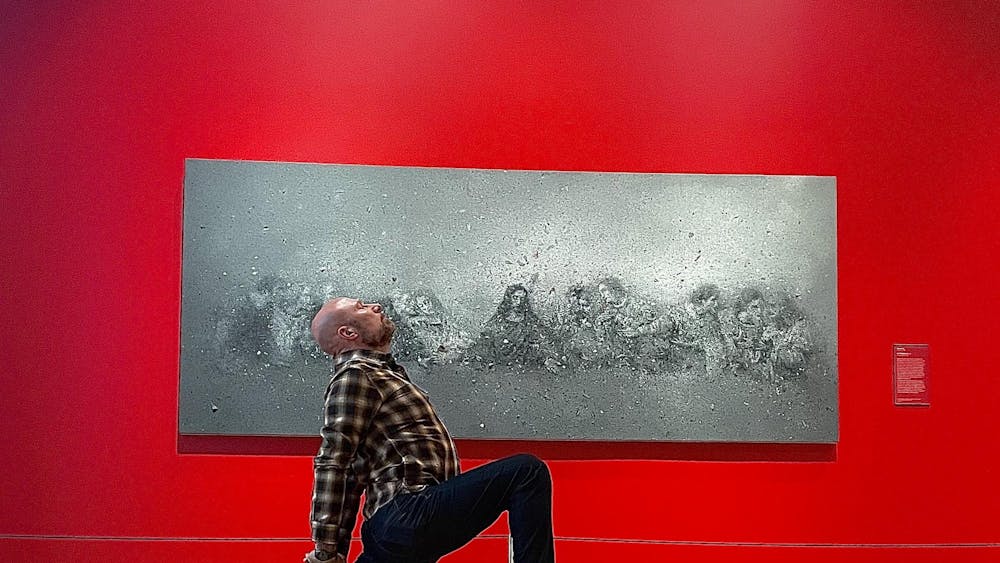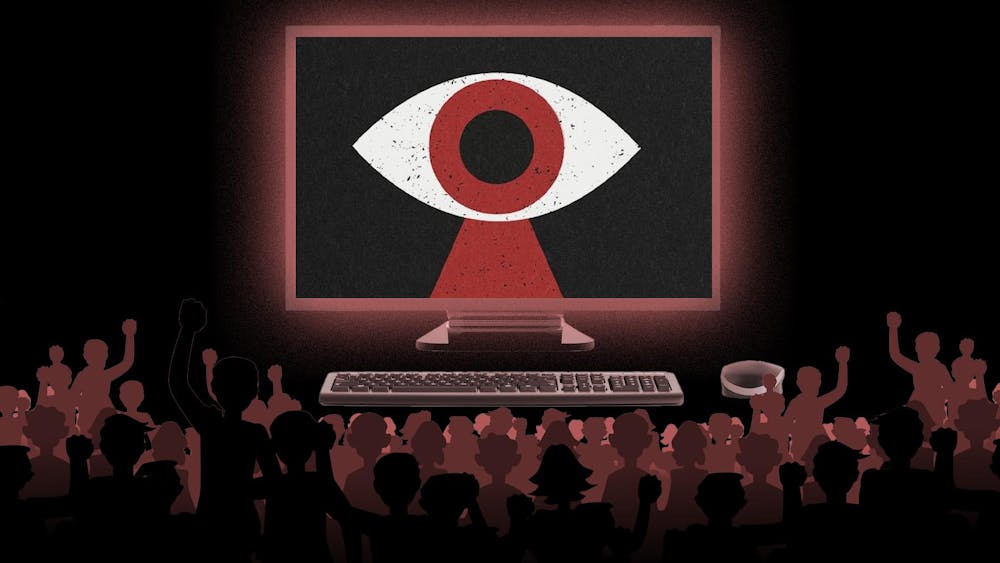Like most people, I’ve spent the last week reading and watching updates on Russian President Vladimir Putin’s invasion of Ukraine. There’s been innumerable analyses and columns in the media about the ramifications of the conflict, the potential for escalation to global war, the heroism displayed by the Ukrainians and much more.
One phenomenon in particular is the praise for Putin among some conservative leaders and talking heads. For instance, Fox News host Tucker Carlson argued we shouldn’t be supporting Ukraine because the real enemy are liberals, not Russia. Putin isn’t the one attempting to “snuff out Christianity,” so why fight him? Former President Donald Trump praised Putin hours before the invasion of Ukraine. Prominent Q'Anon supporter and former GOP Delaware Senate nominee Lauren Witzke commended Putin, claiming that he supports Christian values in contrast to Democrats in America.
I’ll be the first to admit that I’m not a foreign policy or American politics expert. But it does seem strange that these individuals would applaud a man who has imprisoned political dissidents, consolidated power around himself by eliminating democratic norms and committed countless other dangerous acts, not to mention someone who has flagrantly violated international law (most recently, invading Ukraine). This kind of behavior isn’t anything one would expect a democratic citizen to support.
To be fair, many of these figureheads changed their narrative over the weekend, using the Conservative Political Action Conference (CPAC) to express support for Ukraine. However, there was little to no condemnation of Putin for invading the country. For those speakers who did comment on the conflict, most blame was directed at the Biden administration, with no culpability directed to Putin or his government. In fact, despite shifting his tone slightly from the days prior, Trump still reiterated his support for the Russian president.
The strange fascination among conservative leaders for Putin isn’t a one-off event. A plurality of Republicans view Putin unfavorably, despite 15% viewing him favorably, a rate higher than the general public. The more interesting statistic is Republicans’ support for Putin compared to their support for American politicians. According to an Economist-YouGov poll from last month, Republicans view Putin more favorably than they view President Joe Biden, Vice President Kamala Harris, Speaker of the House Nancy Pelosi and the Democratic Party in general. In fact, while 80% of Republicans view Biden as very unfavorable, only 45% share the same opinion for Putin. This suggests that Republicans have greater sympathy towards an autocratic leader than the democratically elected officials of their own country.
The evidence for Republicans’ attachment to Putin becomes clearer when one considers the religious right. Leaders among the conservative American evangelical movement have consistently praised Putin, claiming that he promotes Christian values in Russia. For instance, when Franklin Graham, son of the famous evangelist Billy Graham and head of the Billy Graham Evangelist Association, visited Russia in 2015, he commended Putin for defending Christian values amidst the rise in secularism in America. Putin’s anti-LGBTQ+ laws and war against Islamic terrorism have also been interpreted as the protection of Christian tenants. This praise is often joined by condemnation of the secular West, whose promotion of pluralism and tolerance of other lifestyles is taken as an affront to Christian values. Evangelical leaders increasingly view Putin as the defender of Christianity against the liberal West. Putin presents himself as bringing the restoration of glory to his nation from the supposed humiliation brought by immigration, LGBTQ+ individuals, feminism and other supposedly anti-Christian movements. As a result, Putin has been propelled as the leader of the global Christian right.
I’ve argued before that legislating policy based on one’s religion violates the religious liberty of another citizen. I offer the same warning for those who view Putin favorably on the basis of protecting their religious traditions. Putin isn’t a defender of Christian values. If his long list of atrocities isn’t enough, his policies are not friendly to Christianity. For instance, in 2016, he criminalized evangelical efforts occurring anywhere except in a church. As a result, Baptists, Jehovah’s Witnesses and other members of Christian sects have been arrested for sharing their faith. Evangelicals are continually persecuted in Crimea since its annexation by Russia in 2014. Moreover, we can also see this manifested in the Ukraine conflict. If Russia does conquer Ukraine, we’ll likely see escalation in tensions between the Russian and Ukrainian branches of the Orthodox Church. As the Russian branch grows in influence, persecution of members of the Ukrainian branch will likely follow.
Putin is no friend to religious liberty, especially for Christians. Regardless of whether Putin supports the issues the evangelical movement cares about, his policies actively suppress a Christian lifestyle. Evangelical support for Putin is the equivalent of a rabbit allying with a fox. When all the other prey are gone, the fox won’t hesitate to eat the rabbit.
I’m careful to direct my criticism against leaders of the religious right, not evangelicals in general. My argument contends that the movement’s leaders must shift their position on Putin, both for the sake of human rights and the survival of Christianity in Russia’s sphere of influence. Putin may appear as the champion for conservatives in the culture war, but his actual policies are actively antagonistic towards the lifestyle of evangelical Christians and other Americans. If evangelicals are to involve themselves in politics, especially foreign policy, they should find a new figurehead, perhaps someone who actually supports them.
Blake Ziegler is a junior at Notre Dame from New Orleans, Louisiana, with double majors in political science and philosophy. He enjoys writing about politics, Judaism and the occasional philosophical rant. For inquiries, he can be reached at bziegler@nd.edu or followed at @NewsWithZig on Twitter if you want to see more of his opinions.
Putin isn’t the “defender of Christian values” evangelicals think he is
The views expressed in this column are those of the author and not necessarily those of The Observer.









